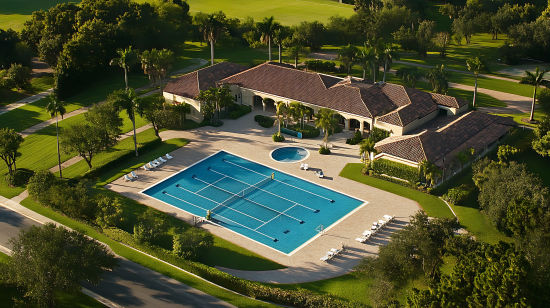Living in a community association in Florida—or more specifically, in the areas I serve like Kendall and surrounding communities—comes with plenty of perks—neat landscaping, well-maintained amenities, and a sense of order. But these perks come with a cost: your homeowners association (HOA) dues or, occasionally, special assessments.
Falling behind on these payments might seem harmless at first, especially if you're going through a rough patch. But in reality, being delinquent can trigger a chain of consequences that no homeowner wants to deal with.
Let’s break down why it’s important to stay current on your HOA dues and what can happen if you don’t.
The Purpose Behind the Payments
HOA dues aren’t just an annoying line item on your budget. They’re how your community stays clean, safe, and functional. These funds cover everything from landscaping and pool maintenance to security and management fees. In Florida, where many communities offer high-end amenities like gated entry, clubhouses, tennis courts, and lakeside views, these fees are essential to keeping everything running smoothly.
Special assessments, on the other hand, usually pop up when unexpected repairs or major projects arise—like replacing a roof on the clubhouse or resurfacing all the roads in your neighborhood. They're not frequent, but they are necessary when reserves fall short.
What Happens If You Don’t Pay
If you miss a payment, your HOA will usually start by sending reminders. If those go unanswered, things can escalate quickly. Florida law gives HOAs strong tools to enforce collections, and they will use them.

First, you could be hit with late fees and interest. This might not seem like a big deal initially, but over time, it adds up fast. Then, your access to community amenities like pools, gyms, or clubhouses can be suspended. If the delinquency continues, the HOA can place a lien on your property. That’s when it gets real.
Liens and Foreclosure: Yes, It Can Go That Far
In Florida, your HOA can file a lien on your property for unpaid dues and, after following the required legal steps, they can move to foreclose on that lien. In other words, you could lose your home over unpaid HOA fees. This surprises a lot of homeowners, but it’s 100% legal under Florida Statute 720 for HOAs and 718 for condo associations.
If you're thinking about refinancing and there’s a lien on your property due to unpaid HOA fees, you’ll likely hit a major roadblock. Most lenders won’t move forward with a refinance unless all liens are cleared. That means you'll have to settle your HOA debt—including any late fees and legal costs—before the refinancing process can even begin.
It can delay or even derail your plans to take advantage of lower interest rates or pull equity from your home. Clearing up that lien isn't just a formality—it's a financial priority if you're looking to restructure your mortgage.
Even if foreclosure doesn’t happen, having a lien on your property creates a massive headache. You might not be able to sell or refinance until the lien is resolved. That could mean thousands in back dues, late fees, legal fees, and interest before you can move forward.
Credit Damage and Legal Costs
Your HOA might not report your delinquency directly to credit agencies, but if your debt goes to collections or ends up in court, it will almost certainly impact your credit score. Plus, if your HOA hires an attorney, you could be responsible for their legal fees in addition to your overdue balance.
So that $300 you didn’t pay on time? It could snowball into thousands.
Looking for a Property in a Well-Maintained HOA or Condo Community?
Life happens. People lose jobs, deal with emergencies, or hit financial bumps. If you're struggling to pay your HOA dues or a special assessment, don’t ignore the problem. Communicate with your HOA or management company as soon as possible. Some associations are willing to work out payment plans or offer short-term arrangements.
The worst thing you can do is stay silent. Silence makes it look like you don’t care or don’t plan to pay, and that’s when associations are most likely to take aggressive legal action.
Protecting Your Investment
When you bought your home in a community association, you bought into a shared responsibility. That responsibility helps protect property values. If too many homeowners stop paying dues, the community suffers. Maintenance gets deferred, amenities decline, and home values drop. Everyone pays the price.
Staying current on your dues doesn’t just protect you from legal trouble—it protects your home’s value and your neighborhood’s appeal. Buyers look for well-maintained communities. If your HOA has financial troubles because of widespread delinquency, it affects everyone trying to sell.
The Bottom Line
If you live in a community association in Florida, staying current on your dues and special assessments isn’t optional—it’s essential. Falling behind can lead to late fees, liens, foreclosure, legal costs, and credit damage. And beyond the financial risk, there's the bigger picture: your dues support the quality of life and property values in your neighborhood.
So don’t think of your HOA payment as just another bill. It’s part of owning a home in a shared community. If you’re struggling, reach out and ask for help before it snowballs. Because when it comes to HOA dues in Florida, avoiding the problem only makes it worse.
Need Help Navigating Your HOA or Real Estate Challenges?
If you're looking to buy or sell in Kendall or surrounding communities with an HOA, or you just want to better understand your rights and responsibilities, I’m here to help. As a licensed community association manager and local real estate expert serving Kendall and surrounding areas, I am very familiar with the ins and outs of association management.
I also manage private owners’ rental properties, including for those living abroad, making property ownership hassle-free no matter where you are. Reach out today to discuss your goals—no pressure, just real advice that works for you.
Subscribe to Blog